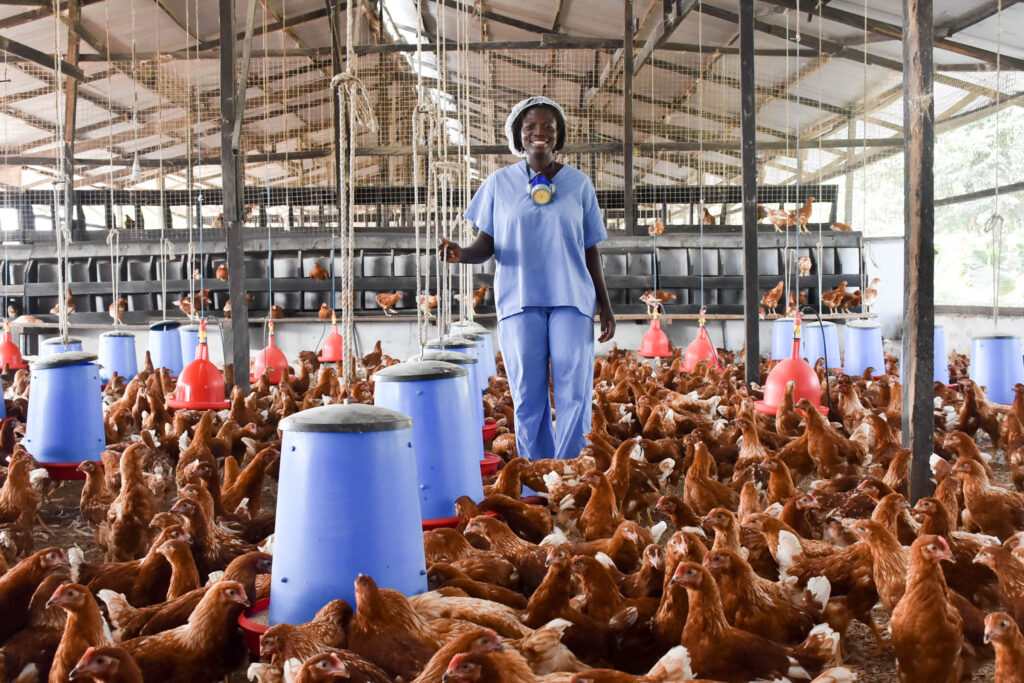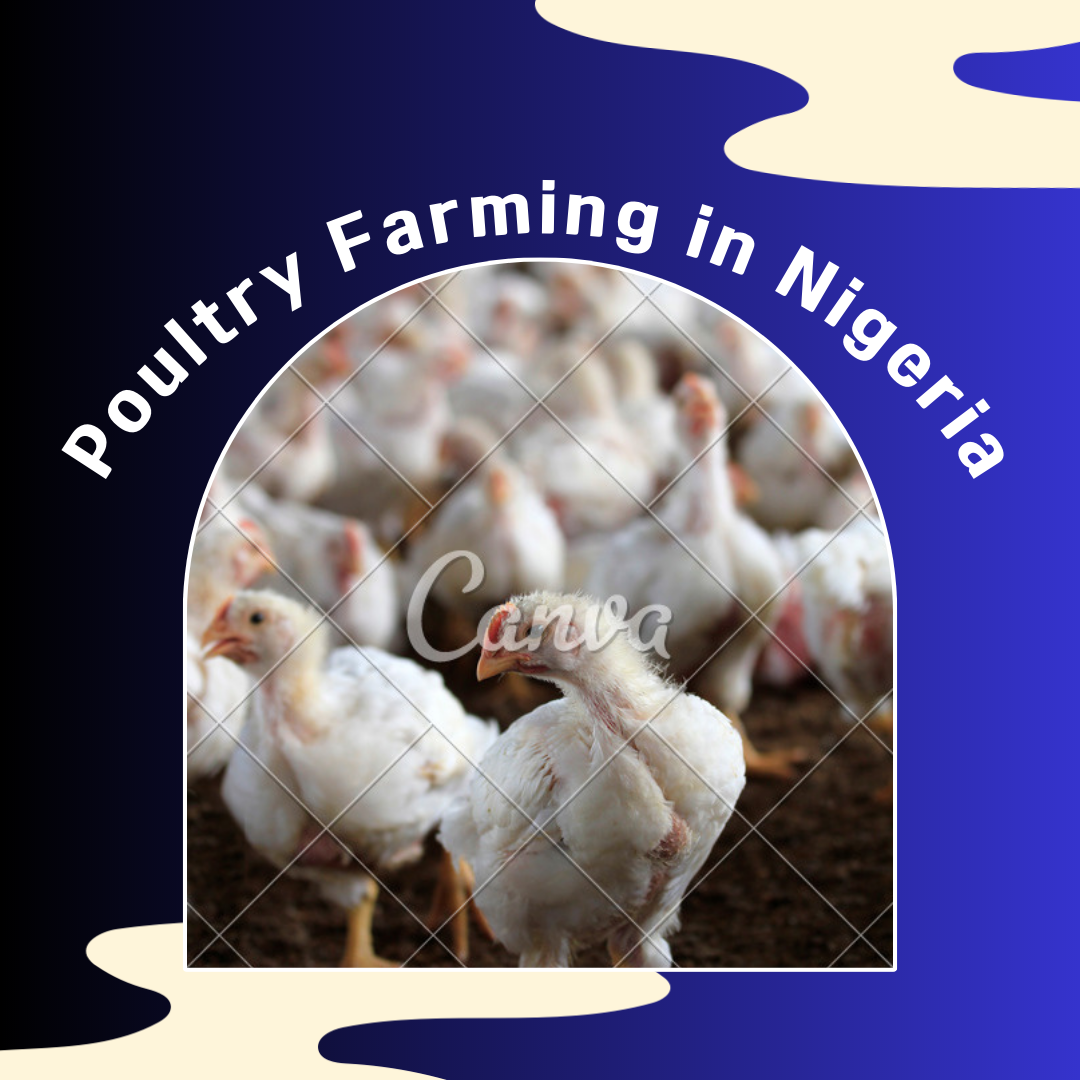Poultry farming has emerged as a thriving and lucrative business in Nigeria, offering immense potential and opportunities for entrepreneurs and farmers. With Nigeria rapidly growing population and increasing demand for food and poultry products, Nigeria provides a fertile ground for individuals looking to venture into poultry farming. In this blog post, we will explore the ins and outs of poultry farming in Nigeria, providing a comprehensive guide to help aspiring farmers navigate this industry successfully.

Poultry farming
Understanding the Nigerian Poultry Industry
- Understanding the Nigerian Poultry Industry: Before diving into poultry farming, it is crucial to understand the Nigerian poultry industry landscape. Nigeria is the largest economy in Africa and has a significant demand for poultry products, including chicken meat and eggs. With a population exceeding 200 million people, the demand for poultry products is projected to continue rising. This presents a tremendous opportunity for poultry farmers to meet the growing demand for daily consumption and industrial use.
Poultry Farming system
2. Choosing the Right Poultry Farming System: Nigeria offers various poultry farming systems, which includes the 3 main type of poultry system in Nigeria that is:
- The intensive system (also known as Battery Cage),
- Semi-intensive system (Deep litter),
- Extensive system (Free-range).
Each system has its own advantages and considerations, such as cost, space requirements, and management practices. It is essential to carefully evaluate these factors and choose a system that aligns with your resources, goals, and the market demand in your target location and also the cost of each.
Setting Up Poultry Farm in Nigeria
3. Setting Up Poultry Farm in Nigeria: Once you have decided on the farming system, the next step is to set up your poultry farm. This involves selecting an appropriate location, securing land, constructing poultry houses or cages, and providing necessary infrastructure such as water supply, electricity, and waste management systems. Adequate ventilation, biosecurity measures, and proper waste disposal are critical for maintaining a healthy and disease-free environment for your poultry.
4. Selecting the Right Poultry Breeds: Choosing the right breed is crucial for the success of your poultry farm. Consider factors such as growth rate, egg production (for layers), disease resistance, and adaptability to local climatic conditions. Some popular Poultry breeds in Nigeria include the Nigerian local breed, Isa Brown, and the Arbor Acres for broiler production. Additionally, consider sourcing your chicks or hatching eggs from reputable hatcheries to ensure the quality and health of your flock. This is a very important and critical to your success as a poultry farmer.
Poultry Feed and Nutrition Management:
5. Proper nutrition is vital for the growth and productivity of human being and is the same or let me say more significant for poultry. Develop a balanced feed formula that meets the specific nutritional requirements of your birds at each stage of their life cycle. You can either purchase ready-made feed from reputable feed mills or formulate your own feed using locally available ingredients. Regularly monitor the weight and health of your birds and make necessary adjustments to their diet to ensure optimal growth and performance.
6. Disease Prevention and Biosecurity: Disease outbreaks can have devastating effects on poultry farms, leading to significant economic losses. Implementing strict biosecurity measures is crucial to prevent the entry and spread of diseases. This includes maintaining a clean and hygienic environment, controlling access to the farm, practicing proper waste management, and vaccinating your birds against common diseases. Regularly consult with a veterinarian to monitor the health of your flock and seek guidance on disease prevention and control.
7. Marketing and Sales: this where most entrepreneurs make the biggest mistake. No business stop production, Effective marketing strategies are essential to sell your poultry products profitably just as it is for other product. Identify your target market, whether it’s wholesalers, retailers, hotels, restaurants, or individual consumers. Utilize digital platforms, social media, and local marketplaces to promote your products and build a strong brand presence. Provide high-quality products, reliable delivery, and excellent customer service to establish a loyal customer base and expand your market reach.

Poultry farming Business
Poultry farming presents a promising opportunity for aspiring farmers and young entrepreneurs in Nigeria. However, success in this industry requires careful planning, proper management, and a commitment to excellence. By understanding the Nigerian poultry industry, choosing the right farming system, setting up a well-equipped farm, selecting appropriate breeds, implementing proper nutrition and disease prevention measures, and effectively marketing your products, you can position yourself for success in the poultry farming business in Nigeria.
Remember, poultry farming is a dynamic and ever-evolving industry, and staying updated with the latest trends, technologies, and best practices is essential. Attend workshops, seminars, and training programs related to poultry farming to enhance your knowledge and skills. Network with experienced poultry farmers, join relevant industry associations, and learn from their experiences and insights.
Also check: Fishing in Nigeria
Starting a poultry farm in Nigeria can be a challenging yet rewarding endeavour. With careful planning, dedication, and a focus on continuous improvement, you can establish a successful poultry farming business that contributes to food security, economic growth, and your own financial prosperity.
Government Regulation and Policy
Additionally, it is crucial to stay informed about government regulations and policies concerning poultry farming in Nigeria. Familiarize yourself with licensing requirements, environmental regulations, and standards for food safety and quality. Complying with these regulations not only ensures the sustainability of your business but also protects the health and well-being of consumers.
Remember, patience and perseverance are key traits for any aspiring poultry farmer. It may take time to build a profitable and sustainable business, but with passion, hard work, and a commitment to excellence, your poultry farming venture in Nigeria can flourish.
So, take the first step, equip yourself with knowledge, and embark on this exciting journey into the world of poultry farming in Nigeria. The possibilities are abundant, and success awaits those who are willing to seize the opportunities that this thriving industry has to offer. Good luck!





One Response